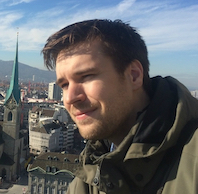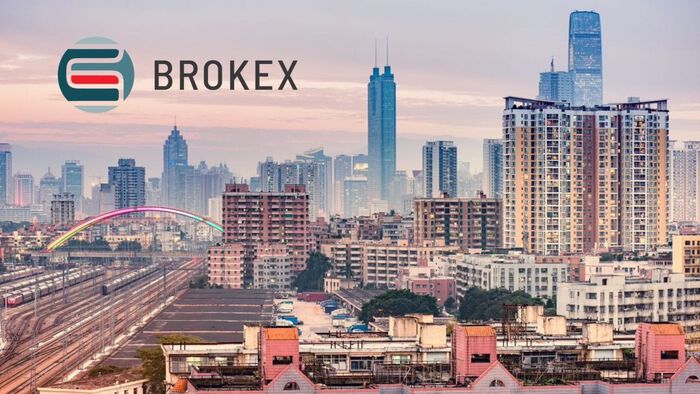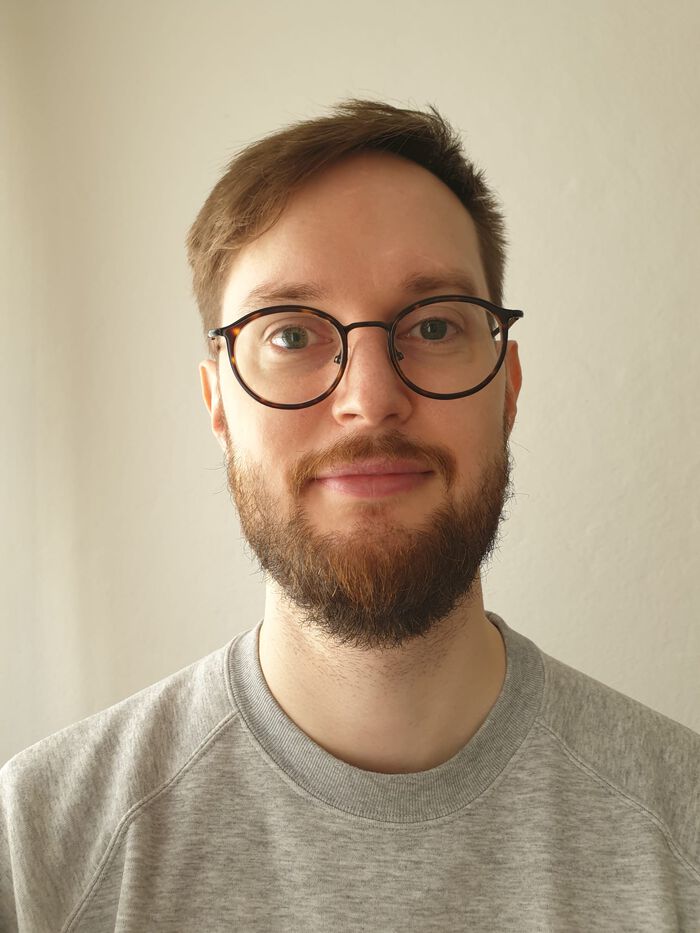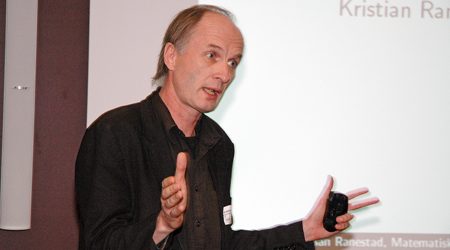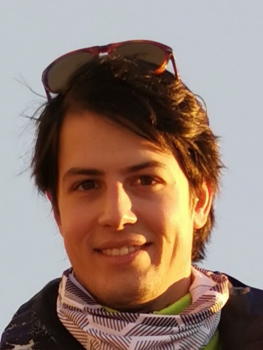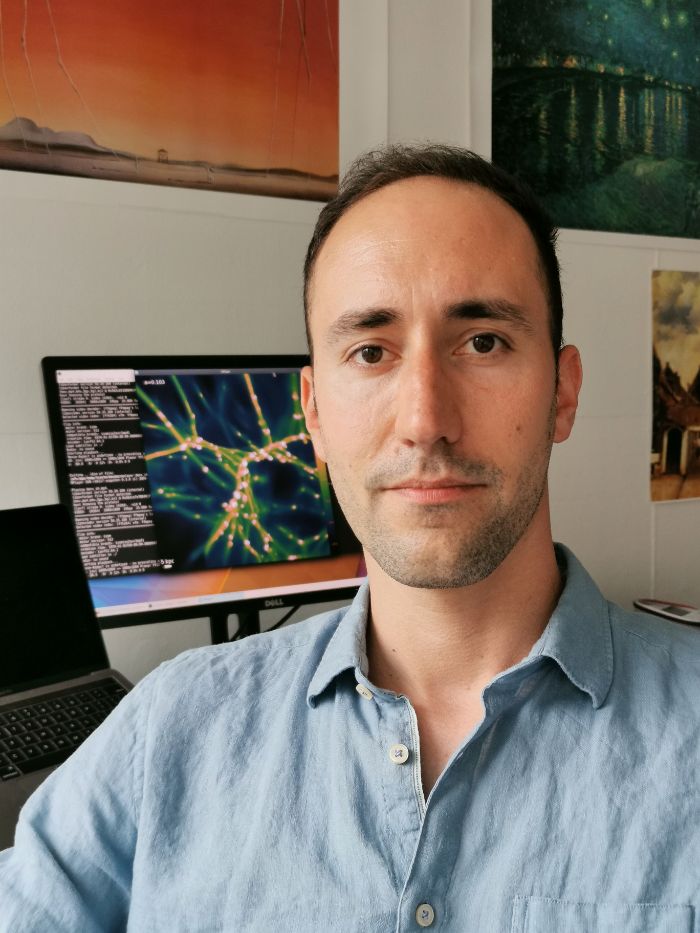Tidligere arrangementer - Side 58
Marginal maximum likelihood estimation of longitudinal latent variable models for ordinal observed variables is challenging due to the high latent dimensionality required to accurately model residual dependencies for repeated measurements. We use second-order Laplace approximations to the high-dimensional integrals in the marginal likelihood function for longitudinal item response theory models and implement an efficient estimation method based on the approximations. The method is illustrated with items from the Montreal Cognitive Assessment, administered at four time points in a Hong Kong study of aging and well-being. We discuss the limitations of the proposed estimation method and outline a potential extension to the approach that uses a dimension-reduction technique.
NCMM Associate Investigators Axel Sandvig, head of the Integrative Neuroscience Group at NTNU, and Kalle Malmberg, head of the Natural Killer Cell Biology and Cell Therapy at Oslo University Hospital, will present their research as part of NCMM's Tuesday seminar series.
Dr. Avijeet Prasad, Rosseland Centre for Solar Physics (RoCS), UiO.
In a famous paper, Geir Ellingsrud and Stein Arild Str?mme use the Atiyah-Bott localization theorem in equivariant cohomology to compute the number of complex twisted cubics on a complete intersection. Motivated by results from A1-homotopy theory there is a new way of doing such enumerative counts which works over an arbitrary base field, not only the complex numbers. Recently, Marc Levine proved a version of Atiyah-Bott localization for this new way of counting.
In the talk I will recall the classical Atiyah-Bott localization theorem and explain how one can use it in enumerative geometry. Furthermore, I will explain how this new way of counting works and present some results about twisted cubics on complete intersections counted this way. This is based on joint work with Marc Levine.
Carlos De Breuck, European Space Observatory (ESO), München.
For the second talk, I will talk about how to relate relative Gromov--Witten invariants with relative periods via relative mirror symmetry and, given a degeneration, how relative periods and (absolute) periods are related on the mirror side.
By Professor Michele K. Dougherty
Department of Physics, the Blackett Laboratory, Imperial College London
Birgitte Stougaard Pedersen, Associate Professor at Aarhus University, will speak at RITMO's Seminar Series.
NCMM Associate Investigators, Nils Halberg, Associate Professor, University of Bergen, and Simona Chera, Professor at the University of Bergen, will present their research as part of NCMM's Tuesday seminar series.
En forskergruppe fra HELED (UiO), SERAF (UiO) og NORCE Samfunn har p? oppdrag av 亚博娱乐官网_亚博pt手机客户端登录sr?det evaluert ordningen med fritt behandlingsvalg. P? dette frokostseminaret presenteres noen av resultatene.
Template Model Builder (TMB) is an R-package that is well suited for performing fast inference with latent Gaussian models when the likelihood can be written as a three times differentiable function. TMB automatically differentiates the likelihood and utilizes Markov structures to efficiently integrate over latent variables with the Laplace approximation. In this seminar I will first introduce TMB and then elaborate a fish stock assessment model implemented with use of TMB that provides quota advice for approximately 25 different fish species in Europe.
A cohomology class of a smooth complex variety of dimension n has coniveau ≥c if it vanishes in the complement of a closed subvariety of codimension ≥c, and has strong coniveau ≥c if it comes by proper pushforward from the cohomology of a smooth variety of dimension ≤n?c. We show that these two notions differ in general, both for integral classes on smooth projective varieties and for rational classes on smooth open varieties. This is joint work with Olivier Benoist.
China’s economic reforms have caused rapid growth for a period of forty years. The Chinese Communist Party’s gradualist approach to reform was not inevitable. What were the alternative routes and why were they abandoned? What new obstacles for further Chinese economic development may change its future course?
E?rs Szathmáry, Institute of Evolution, Centre for Ecological Research, Budapest and Parmendes Foundation Pullach/Munich
Haakon Andresen, Max Planck Institute for Gravitational Physics, Germany
A graded Artinian Gorenstein ring A is a quotient of a polynomial ring S with the apolar ideal of a homogeneous form. The Betti numbers of the resolution of A as an S-module are invariants to the homogeneous form. In joint work with Michal and Gregorz Kapustka, Hal Schenck, Mike Stillman and Beihui Yuan, we use these Betti numbers to describe a stratification of the space of quartics in four variables.
Alberto Merici will present his paper (joint with Frederico Binda and Shuji Saito) "Derived log Albanese sheaves".
Oliver R?ndigs will give a one hour talk entitled "Homotopy of SLn and the relation between Milnor- and Quillen K-theory"
Abstract: It is known that a sessile drop subject to a forced vibration will vibrate in different shapes depending on the frequency of the forcing, the drop’s liquid properties and the liquid/solid/gas system. So the question then becomes, what can these vibrating drops help us understand? Here we find that we can use the motion of these drops to understand the constitutive law relating the drop’s apparent dynamic contact angle to its contact line velocity. We find we are able to extract mobility parameters like those described by the Davis-Hocking model, and that mobility parameters extracted in this fashion can be used in simulations of drop-drop coalescence to accurately predict post-coalescence dynamics.
This talk is part of the Mechanics Lunch Seminar series. That means 20min talks plus discussion in an informal setting and bring-your-own-lunch.
Tiago Costa, Max Planck Institute for Astrophysics, Germany
NCMM Associate Investigators, Dr. Even Rustad, Akershus University Hospital and Oslo University Hospital, and Rune Enger, Institute of Basic Medical Sciences, University of Oslo, will present their research as part of the NCMM Tuesday seminar series.
Forskergruppen Helsestyring og helseledelse inviterer til videokonferanse 18. august om ledelse i helsevesenet etter pandemien.
NCMM Associate Investigator, Dirk Linke, Professor for Molecular Microbiology at the Department of Biosciences, University of Oslo, will present his research as part of the NCMM Tuesday Seminar Series


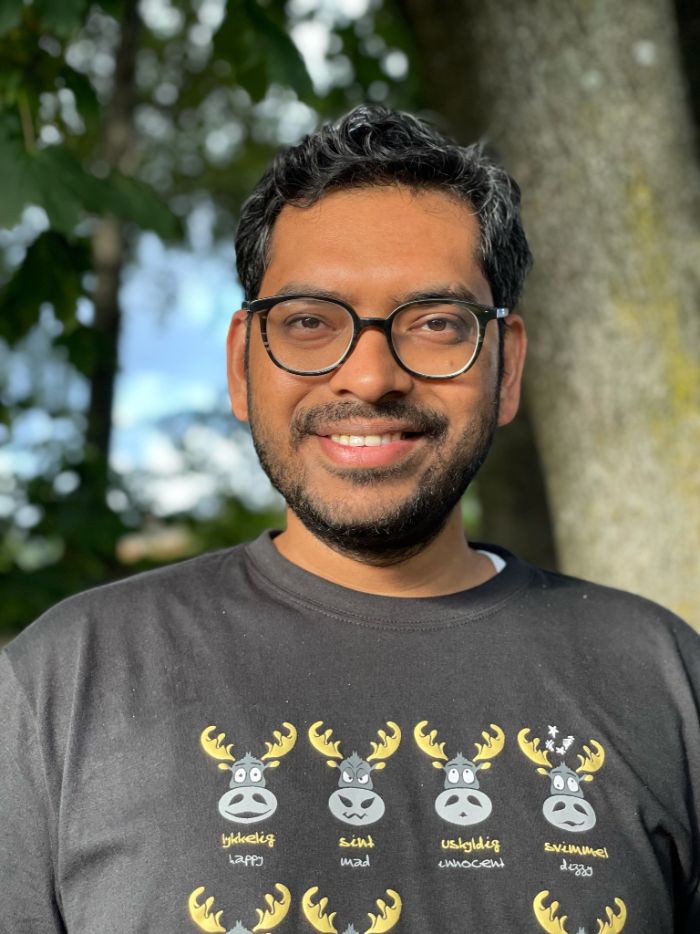
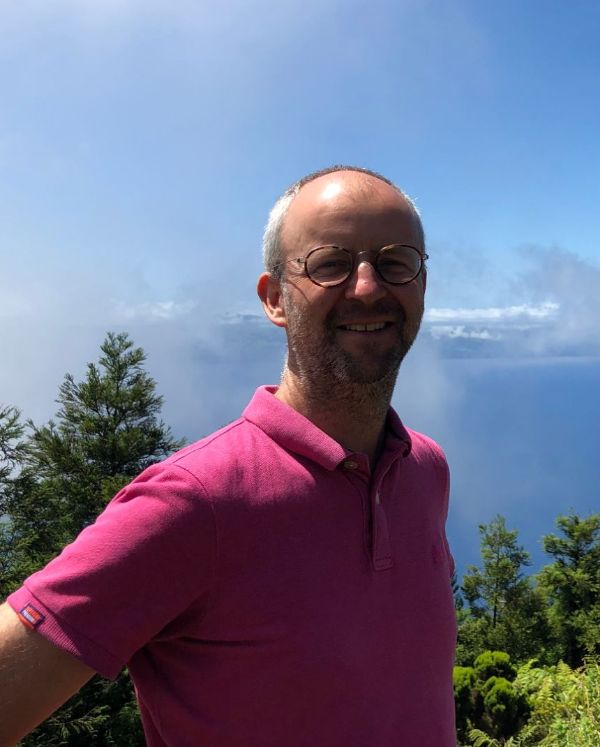


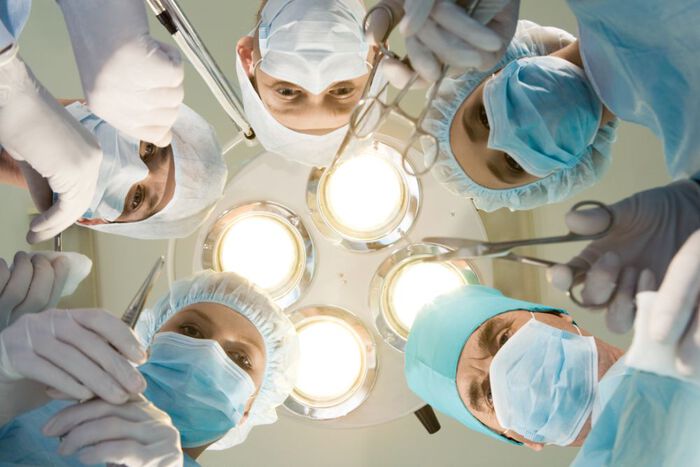
.jpg?alt=listing)
